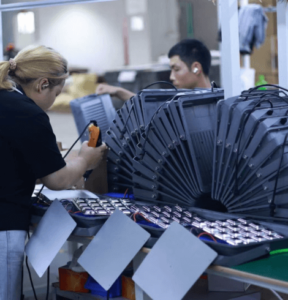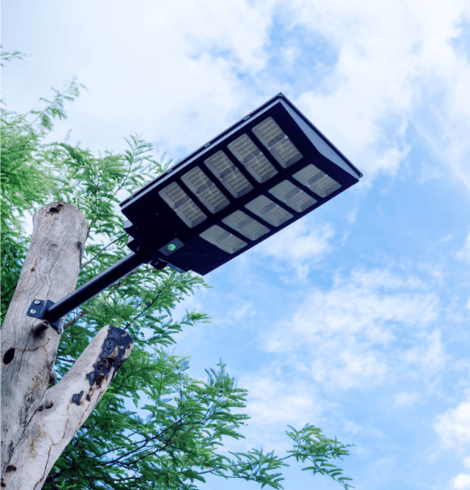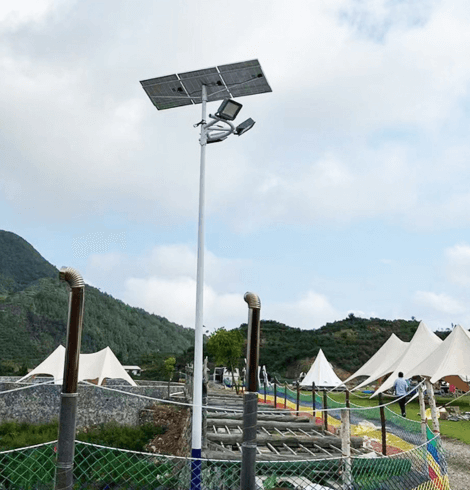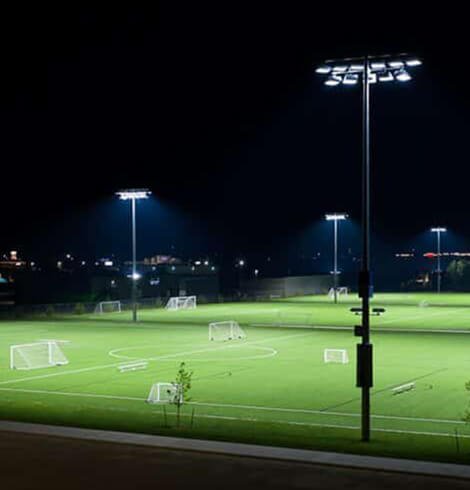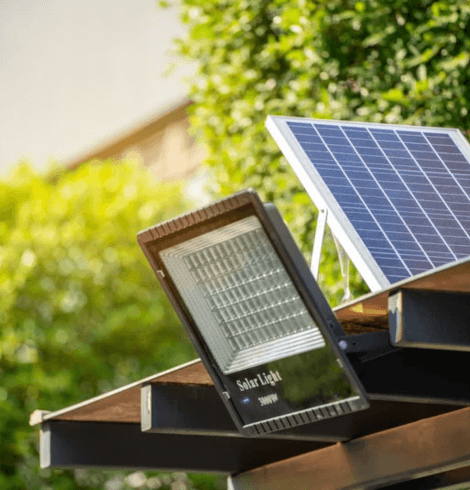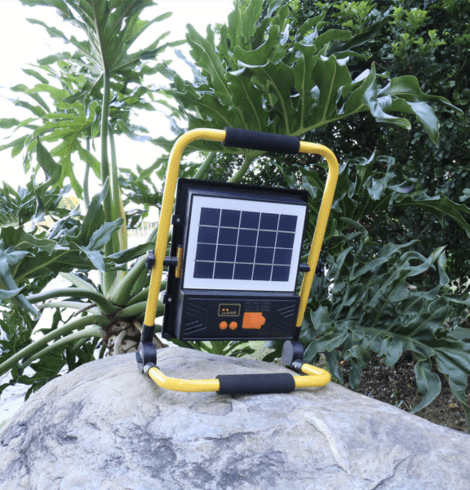Solar street lights are popping up in cities and towns all over the world, helping reduce energy consumption and lighting up streets in an eco-friendly way. But have you ever wondered how they actually work? Let’s explore how these lights tap into the sun’s power to keep our streets lit at night—completely off the grid.
Solar street lights convert sunlight into electricity through solar panels during the day. This energy is stored in batteries and used to power LED lamps at night, all controlled automatically by an intelligent controller.
Now, you know how solar street light work. Still curious about how each part of the system works together? Stick around, and we’ll break it down step by step, so you can see why solar street lights are changing the way we illuminate public spaces.
What Are The Solar Street Light Components?
Solar street lights are more than just a lamp with a solar panel stuck on top. Here’s a look at each vital component and how it contributes to the overall system.
Solar Panel
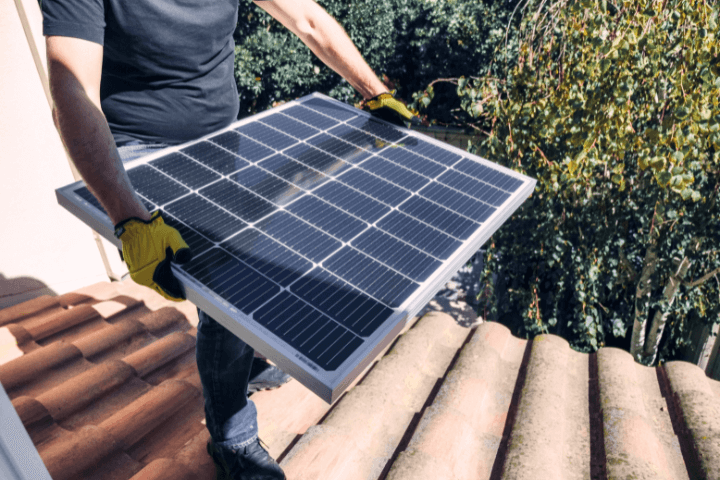
Think of the solar panel as the engine of the whole system. It captures sunlight during the day, converting it into electricity using photovoltaic (PV) cells. But not all solar panels are created equal. High-quality solar panels are more efficient, meaning they can capture more sunlight even on cloudy days. Fun fact: The angle of the panel matters! It’s positioned to catch the most sunlight throughout the day.
Battery

The battery is like the “fuel tank” that stores the electricity generated by the solar panel for later use. Without it, the solar street light wouldn’t be able to work after sunset. Typically, solar street lights use lithium-ion batteries because they are efficient and have a long lifespan. A well-sized battery ensures that even during cloudy days, the street light won’t run out of power.
LED Lamp

Why LED? It’s simple: LEDs are super-efficient. They produce more light while consuming less power compared to traditional bulbs. This is why solar street lights can operate all night long without needing a large battery.
LEDs also offer better light quality—they emit bright, consistent light that is ideal for outdoor lighting. Many LED lamps can last for 50,000 hours or more, which significantly reduces maintenance costs over time.
Controller

The controller is often overlooked but is a key part of the solar street light system.It is the brains of the operation. It manages the flow of electricity between the solar panel, the battery, and the LED lamp.
It also automates the light’s operation, switching it on at dusk and off at dawn. Some advanced models even have motion sensors that adjust brightness based on movement to save energy.
Light Pole

The pole does more than just hold the light up. It needs to be sturdy and tall enough to position the solar panel for maximum sun exposure, while also ensuring the LED lamp provides adequate lighting for streets and pathways.
In areas with heavy winds, poles are often reinforced with anti-rust coatings to withstand harsh weather conditions.
How Do Solar Street Lights Work?
So far, we have learned all the components in a solar street light. And how each of them works together in an integrated system. Now, let’s see how a solar light works day and night, and how it operates.
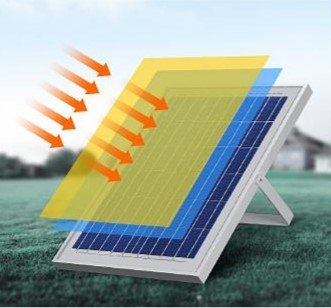
Daytime Charging
During daylight hours, the solar panel absorbs sunlight and converts it into electricity, storing it in the battery. Even on cloudy days, modern solar panels can capture diffuse sunlight and generate electricity, though the amount stored will be less than on clear days. This process is completely automatic, requiring no manual intervention.
Nighttime Illumination
As the sun sets, the controller detects the drop in light levels and activates the LED lamp. The battery then powers the light throughout the night. LED technology ensures that the system uses minimal energy while providing bright, reliable light.
Automatic Operation
One of the key features of solar street lights is their fully automated operation. Once installed, there’s no need to manually switch the lights on or off. The controller does this automatically, responding to the level of ambient light. Some systems are also equipped with dimming controls to save energy during off-peak hours.
Summary
In short, solar street lights offer a smart, energy-efficient, and sustainable way to illuminate streets, pathways, and public spaces. They work by converting sunlight into electricity during the day, storing it in batteries, and powering highly efficient LED lamps at night. The entire system operates automatically, making it an ideal solution for both urban and remote areas. They’re smart, green, and low-maintenance.
Solar Street Light Advantages
Thinking about making the switch to solar street lights? You’re in good company! From bustling cities to cozy suburbs, everyone’s hopping on the solar bandwagon—and for good reason. These lights aren’t just a fancy upgrade; they’re a smarter, greener way to light up our world. Let’s dive into why solar street lights are leaving traditional lighting in the dust.
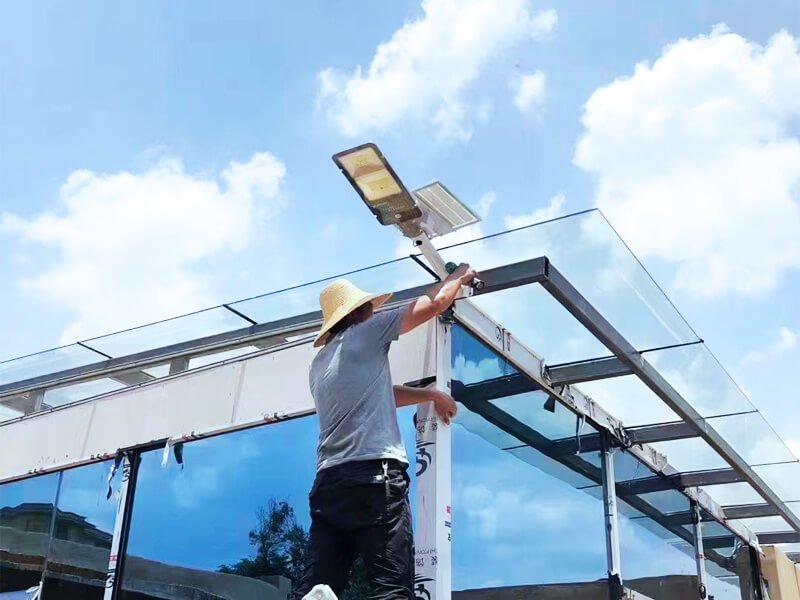
Eco-Friendly and Sustainable
Picture this: a city skyline glowing softly under the night sky, powered entirely by the sun. That’s the future we’re talking about with solar street lights. By harnessing solar energy, these lights drastically cut down on carbon emissions and keep our air cleaner. It’s like giving Mother Nature a big, green hug! And with zero reliance on fossil fuels, you’re not just lighting the streets—you’re lighting the path to a more sustainable future.
Total Independence from the Grid
Here’s one of the coolest things about solar street lights: they don’t need the grid. That’s right! They’re completely self-sufficient. This makes them a game-changer for remote areas where installing power lines is a headache (and a wallet-buster). Plus, in places prone to natural disasters or power outages, these lights stay on, keeping the roads and pathways lit when it matters most. No grid? No problem.
Big Savings Over Time
Okay, let’s talk dollars and cents. Yes, the upfront cost of solar street lights might give you sticker shock. But think about the long game. With traditional street lights, you’re constantly shelling out for electricity and repairs. Solar lights, on the other hand, run on free, endless sunshine. And with durable LED bulbs and minimal maintenance needs, you’re looking at serious savings over the years. So, while the initial price tag might make you hesitate, the long-term savings make it a total no-brainer.
Quick and Easy Installation
Ever set up a traditional street light? It’s a major hassle—digging trenches, laying down cables, coordinating with utility companies. With solar street lights, you can skip all that drama. No wiring, no trenching, no headaches. Just set them up and they’re good to go. Need to light up a parking lot, a park, or even a temporary event? You can have these lights up and running in hours, not days. It’s flexible, fast, and oh-so-convenient.
Boosts Safety and Security
Let’s face it: dark, shadowy areas don’t exactly scream “safe.” But with solar street lights, you can brighten up those sketchy spots and make them safer for everyone. Many models even come with motion sensors that crank up the brightness when they detect movement—perfect for catching a passerby’s attention or making sure drivers see everything clearly. And the best part? All this extra safety doesn’t cost you a dime in energy bills.
Is Solar Street Light A good Investment?
Switching to solar street lights might seem like a big investment up front, but when you look at the numbers, it’s a no-brainer. Here’s why making the switch is a smart financial move.
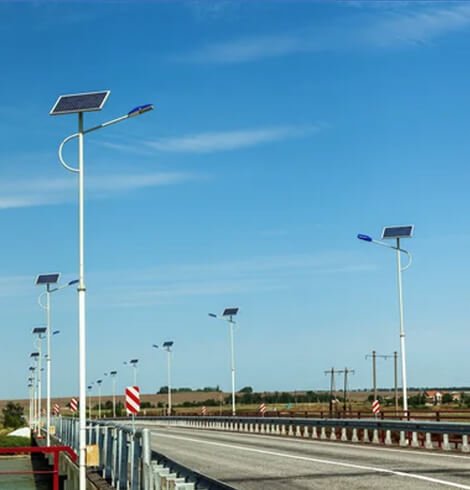
Installation Costs: Simpler and Cheaper
Yes, the initial cost of solar street lights is higher because of the solar panels and batteries. But think about the installation process. Traditional street lights need a lot of groundwork—digging trenches, laying cables, connecting to the grid—it’s a hassle and expensive. Solar street lights, on the other hand, don’t need any of that. You just install them and they’re good to go, which means lower installation costs, especially in tough-to-reach spots.
Say Goodbye to Energy Bills
Imagine never having to pay another electricity bill for your street lights. That’s what solar street lights offer. Traditional lights are hooked up to the grid, which means you’re paying for power every single month. Solar street lights? They run on free sunlight. Over time, that’s a huge amount of money saved—especially if you’re lighting up a large area like a city street or parking lot.
Minimal Maintenance = Lower Costs
Traditional street lights are needy. They require constant maintenance—changing bulbs, fixing wiring, and more. But solar street lights are much lower maintenance. Their components, like LED lamps and batteries, are built to last. This means fewer trips up the ladder and less money spent on repairs.
Long-Term Savings Pay Off
Yes, you’ll spend more on solar street lights upfront, but they pay you back. How? By cutting out energy costs and reducing maintenance expenses. Over time, those savings add up, and you’ll find that the investment has paid for itself. And after that? It’s all savings.
Take Advantage of Incentives
Many governments offer tax breaks and incentives for using renewable energy solutions like solar street lights. These perks can significantly lower your initial costs. It’s definitely worth checking out what’s available in your area because these programs can make an already smart investment even smarter.


